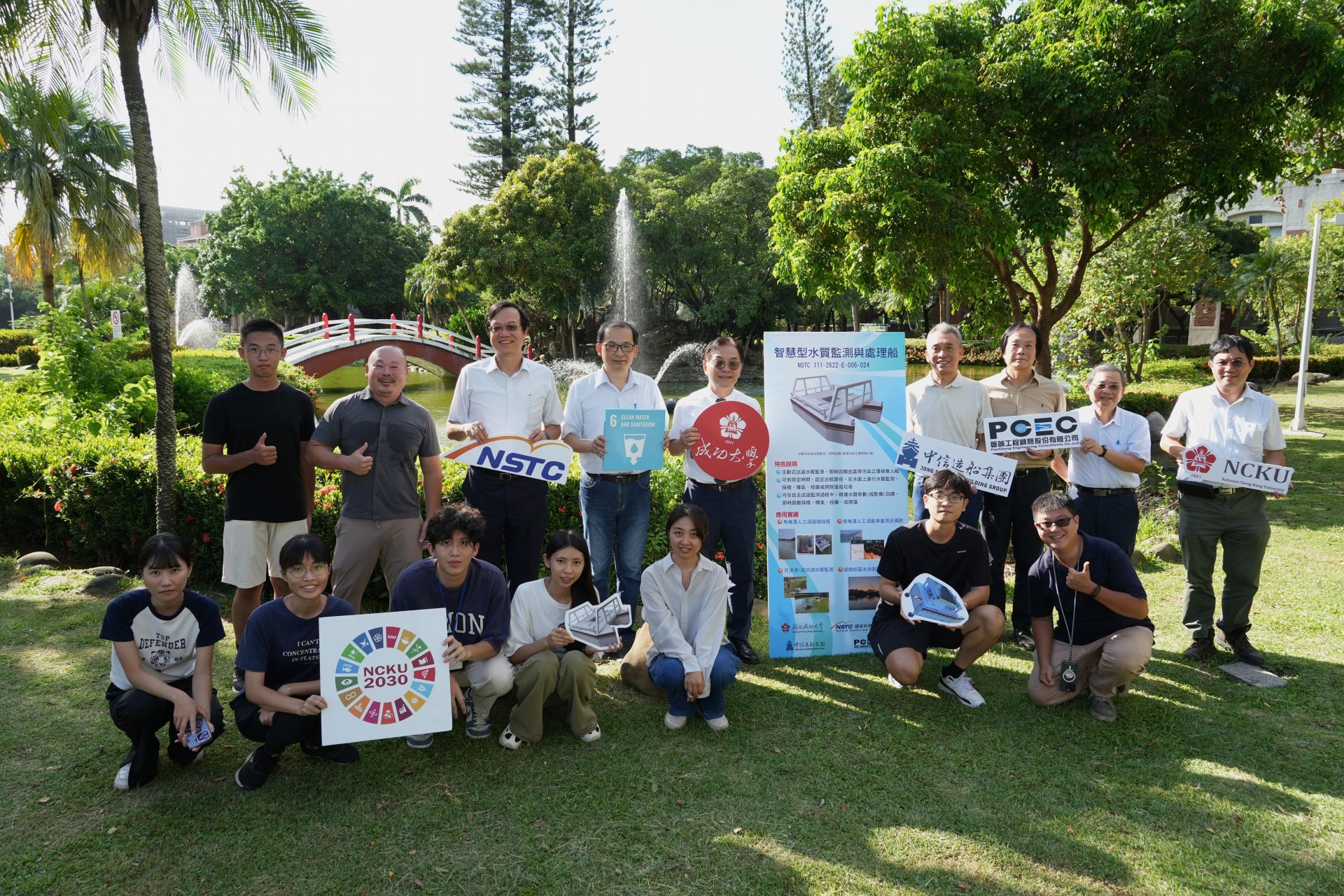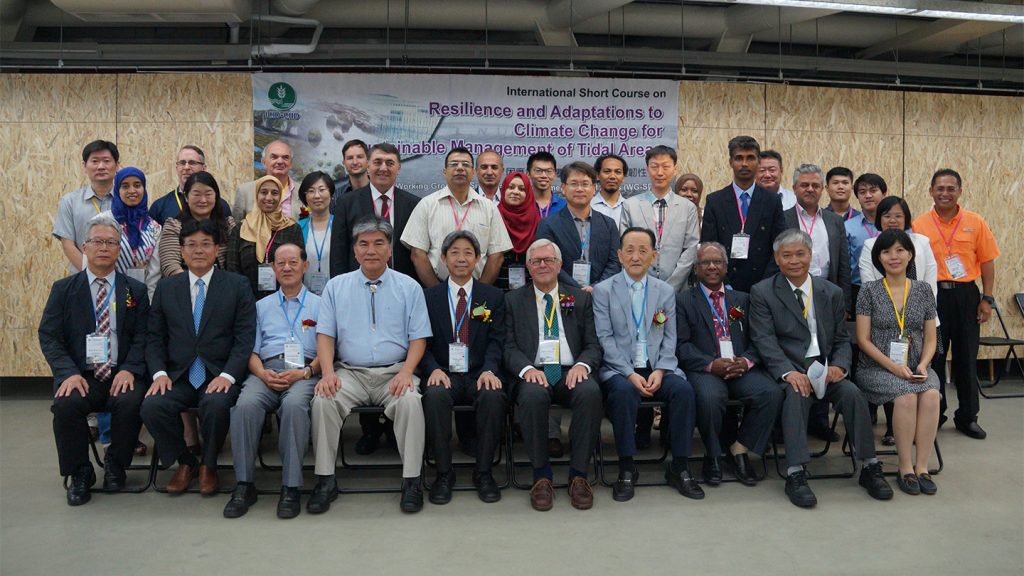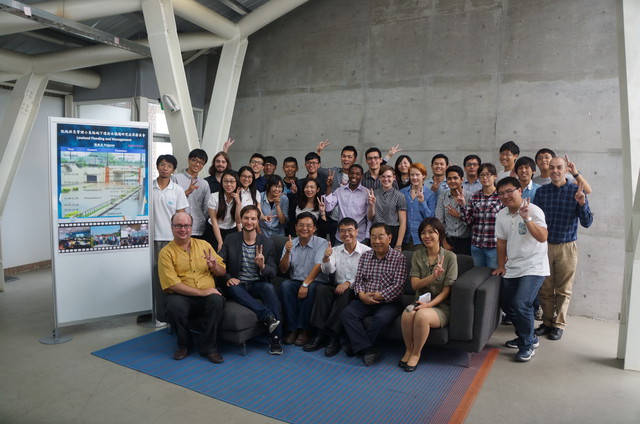SDG6
Wetland Reflections from a Global Gaze: NCKU International Students Submerged in Discussions About the Tainan Salt Fields
The Department of Hydraulic and Ocean Engineering, NCKU, brings students closer to the core of their studies in courses offered by Professor Wang Hsiao-Wen (王筱雯), Interdisciplinary Principles in Sustainable Development and Management of Wetland Environments, in which solutions are sought to resolve wetland restoration issues. Students from NCKU invited by Taijiang National Park are learning first-hand what the current wetland restoration scene looks like in Tainan Sicao and the Qidu Salt Fields.
Students walked alongside the research team into the local residents’ lives in a two-day workshop on May 16th and 17th of this year. The Taiwan-based research team led students of various nationalities in an investigation of the dilemma faced by local residents. The courses are part of The Certificate Program in Sustainable Development (CPSD), which is aimed toward training students to contribute to sustainable development through field studies and projects. The issues the students come across in the courses are not only present in Taiwan, but are also experienced by people in their own home countries.
The group visited the local sites and observed the sluice. The Tainan salt fields ceased solar salt production in 2002, and the salt fields have since then become a haven for wild animals, in turn boosting biodiversity. Aquatic birds like the Kentish Plovers and endangered migratory birds such as black-faced spoonbills can be seen strolling through the unused salt fields. Due to worries over flooding, the local residents have opted to keep water out of the salt fields. Even though this method prevents flooding, it is damaging to biodiversity because the dry salt fields gradually lose their wetland wildlife. Now, the local residents are considering reopening the sluices to the unused salt fields to protect the environment. However, the problem with flooding remains.
Lin (林雨柔), assistant to the research team led by Professor Wang Hsiao-Wen, said that the students measured the water depth themselves and talked with the local residents to determine what would be the best policy to employ in this situation. She says the direct interaction with the environment and the local community was intended to help them formulate a comprehensive strategy.
Indonesian student Tania Meira Aveline said that people in her own country are also caught in such dilemmas. Her father works in the construction industry and often faces tough decisions between environmental preservation and economic development. Based on the interactions with local residents in Qigu, Tania felt that the residents are very well aware of the issues at hand and are willing to engage in discussions with the government to look for solutions together. She recognizes the importance of communication when dealing with environmental issues.
“Other than here, there isn’t a job that allows me to incorporate my interests into my expertise,” says Adrienne Dodd, a U.S. citizen who has been in Taiwan for five years. After graduating from the NCKU International Master Program on Natural Hazards Mitigation and Management, she stayed at her alma mater and is now a course assistant. Environmental issues often pose challenges to researchers from a variety of perspectives, and many discussions on solutions only remain ideas and are never realized. Dodd stated that this course is different, in that participants get the opportunity to see their ideas become reality one day, and there is a chance to see their studies connect to real life and how they can apply their knowledge into helping those in difficult situations.
The two courses assembled students representing over 17 nationalities across 14 departments. The interdisciplinary interaction enables the wetland restoration issue to be seen from different perspectives and provides a chance for students to come up with novel ideas. Combining their own expertise with what they heard from the local residents and what they observed in Qigu, the students made efforts to determine the best way to utilize the salt fields. They proposed multiple ideas for tourism development that will cause least interference to the natural environment.
Professor Wang Hsiao-Wen said the Taijiang National Park received the proposals and appreciated their efforts, and the Park has invited her research team to make further explorations in these directions.
Students walked alongside the research team into the local residents’ lives in a two-day workshop on May 16th and 17th of this year. The Taiwan-based research team led students of various nationalities in an investigation of the dilemma faced by local residents. The courses are part of The Certificate Program in Sustainable Development (CPSD), which is aimed toward training students to contribute to sustainable development through field studies and projects. The issues the students come across in the courses are not only present in Taiwan, but are also experienced by people in their own home countries.
The group visited the local sites and observed the sluice. The Tainan salt fields ceased solar salt production in 2002, and the salt fields have since then become a haven for wild animals, in turn boosting biodiversity. Aquatic birds like the Kentish Plovers and endangered migratory birds such as black-faced spoonbills can be seen strolling through the unused salt fields. Due to worries over flooding, the local residents have opted to keep water out of the salt fields. Even though this method prevents flooding, it is damaging to biodiversity because the dry salt fields gradually lose their wetland wildlife. Now, the local residents are considering reopening the sluices to the unused salt fields to protect the environment. However, the problem with flooding remains.
Lin (林雨柔), assistant to the research team led by Professor Wang Hsiao-Wen, said that the students measured the water depth themselves and talked with the local residents to determine what would be the best policy to employ in this situation. She says the direct interaction with the environment and the local community was intended to help them formulate a comprehensive strategy.
Indonesian student Tania Meira Aveline said that people in her own country are also caught in such dilemmas. Her father works in the construction industry and often faces tough decisions between environmental preservation and economic development. Based on the interactions with local residents in Qigu, Tania felt that the residents are very well aware of the issues at hand and are willing to engage in discussions with the government to look for solutions together. She recognizes the importance of communication when dealing with environmental issues.
“Other than here, there isn’t a job that allows me to incorporate my interests into my expertise,” says Adrienne Dodd, a U.S. citizen who has been in Taiwan for five years. After graduating from the NCKU International Master Program on Natural Hazards Mitigation and Management, she stayed at her alma mater and is now a course assistant. Environmental issues often pose challenges to researchers from a variety of perspectives, and many discussions on solutions only remain ideas and are never realized. Dodd stated that this course is different, in that participants get the opportunity to see their ideas become reality one day, and there is a chance to see their studies connect to real life and how they can apply their knowledge into helping those in difficult situations.
The two courses assembled students representing over 17 nationalities across 14 departments. The interdisciplinary interaction enables the wetland restoration issue to be seen from different perspectives and provides a chance for students to come up with novel ideas. Combining their own expertise with what they heard from the local residents and what they observed in Qigu, the students made efforts to determine the best way to utilize the salt fields. They proposed multiple ideas for tourism development that will cause least interference to the natural environment.
Professor Wang Hsiao-Wen said the Taijiang National Park received the proposals and appreciated their efforts, and the Park has invited her research team to make further explorations in these directions.
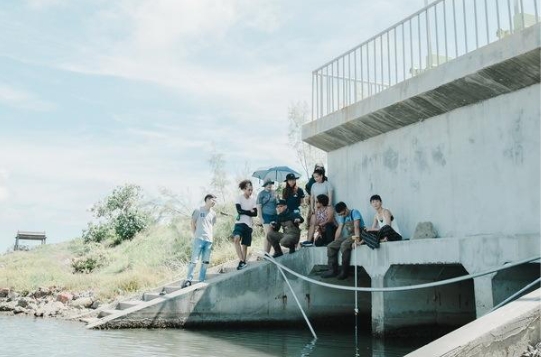
Students of various nationalities sought solutions to wetland restoration.
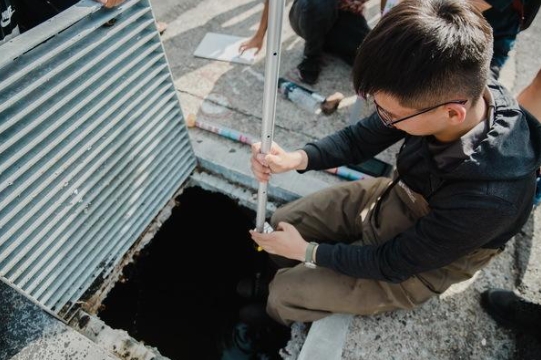
Students got the opportunity to see their studies connect to real life in this course.
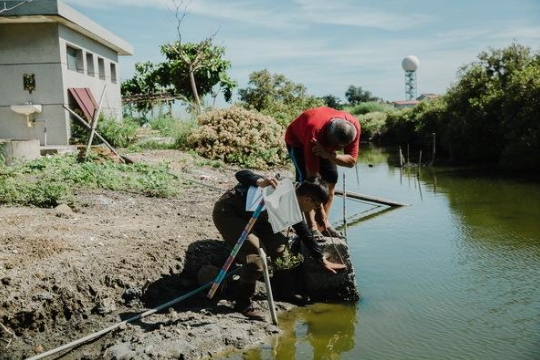
Students measured the water depth to better understand the issues faced by local residents.
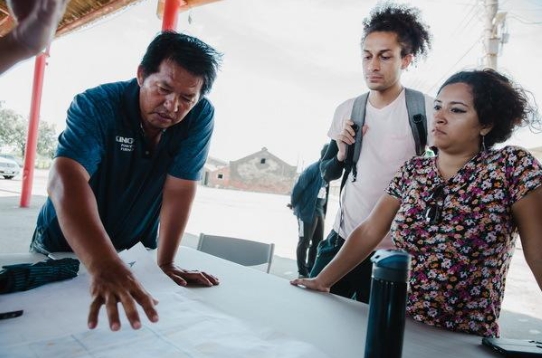
The research team intended to help the local community to formulate a comprehensive strategy.

The interdisciplinary interaction enables the wetland restoration issue to be seen from different perspectives.




